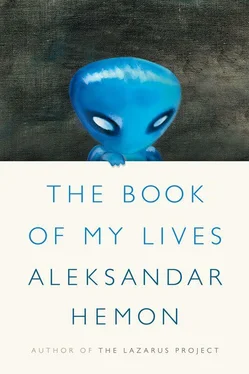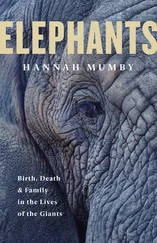Given that we had no access to high school girls and their bodies, we played a lot of chess. Often we organized entire tournaments. We played during class time, while our teachers were completely oblivious to it all. The score chart was pasted to the classroom wall, Mladen always at the top of it, head and shoulders better than any of us. He was so good, in fact, that he could play blindfold games on multiple boards, sometimes against as many as six, all the while paying close attention to the teacher and studiously copying from the chalkboard. We would risk reprimand, hiding our chessboards under our desks, fully ignoring the learning going on. Upon analyzing the position at hand, each of us would send him a note, reading, for example, “Ke2 to e4.” Without losing the thread of the teacher’s explanation, he would quickly respond with a move. We could instantly see the brilliance of his thinking and recognize we were being demolished. In revenge, we would mock the way in which he wiped the chalkboard clean, sticking his butt out while pulling down the sponge in straight, parallel lines.
The only one who could even begin to compete with Mladen was Ljubo. I’d known him in elementary school. Back then, when I’d pretended to be the George in a Beatles cover band, he’d taken a crack at being the Ringo. By high school, however, Ljubo lost interest in rock ’n’ roll and indeed in most things outside the realm of mathematics and chess. Unlike the neat, disciplined, well-groomed Mladen, Ljubo was relentlessly sloppy, fully compliant with the stereotype of an absentminded mathematician. His handwriting was so illegible that he sometimes received low grades in math tests simply because the teacher could not decode his brilliant solutions to difficult equations. Contaminated by the neoromantic myths of unconventionality (Bukowski! Sex Pistols! Warhol!), I thought that his inability to function within the reality everyone else was confined by was a mark of true genius — he, I thought, could end up being the great one among us.
In our junior year, Mladen decided that he was done playing blindfold games with patzers and explaining complex-function graphs to buffoons like me. Within a few months, he passed all the necessary exams, graduated from high school, enrolled in college, and disappeared into the netherland of responsible life. The rest of the grocer patzers had to jump through the hoops of baccalaureate exams before graduation, only to serve in the military for a mandatory year of conscription.
Ljubo, who was too slovenly and disorganized to do what Mladen did and thus avoid serving in the army, had a dreadful time as a conscript. He came back from the army terribly distraught, in spite of which he passed all the difficult math exams in his first year of college. The only exam he had problems with was in geometry, because he had to draw graphs and keep them neat. He would come to the exam unshaven and bepimpled, his unwashed shirt untucked, a broken ruler and a single blunt pencil in hand. The graphs he had to draw for the exam seemed to represent his complexly muddled mind far more than simple euclidean space.
Soon he was enmeshed in full-fledged schizophrenia. A couple of times he was locked up in Jagomir, a grim funhouse close to the city zoo on the outskirts of Sarajevo. I never went to visit him there, but a few of my classmates did. They came back with dreadful stories of small rooms packed with patients serving imaginary coffee in imaginary pots to imaginary guests or huddling in the corners and howling in unreal pain. For his visitors, Ljubo unfurled long and elaborate tales of intricate conspiracies, scoffing at his classmates for failing to see the obvious connections between remote possibilities. Unlike Ljubo, they had no voices to guide them through his chaotic interiority and they listened to him, helplessly, bemused.
Once, after Ljubo returned to his parents’ home from Jagomir, his mother called us up and suggested that we come over to talk to him and cheer him up. The seven of us, his high school friends, rang the bell sheepishly, giggling with discomfort, and offered our chocolate-bonbon presents to his distressed mother. She served us soft drinks and snacks, as if we were at a birthday party, and then left us alone, no doubt to press her ear against the door. We babbled awkwardly, because Ljubo was not well at all and we didn’t know what to say. He was listless and slow, affected by strong antipsychotic medication. Then we listened in stunned silence as he spun his schizo-narratives. This time, he divulged to us the true story of Alekhine, who, in Ljubo’s rendition, descended directly from God himself and therefore partook in some sort of destiny-control mechanism, plainly visible to those who analyzed his games correctly. Somehow, Alekhine’s divinity had been transferred to Ljubo, who was thus in direct communication with God. We had no idea, he told us, about the things that were happening as we spoke, we had no way to grasp the magnitude of his still-unused powers. The Alekhine yarn was then threaded into his claim that the truly great grandmasters — those of Alekhine’s divine caliber — all eventually quit playing the game. Because the number of various positions in chess, however immense, was finite, the true grandmasters eventually played their way through all the possible combinations, thereby reaching the outer limits of chess. At that point, they got bored, as there were no more games they could play. We listened to him, rapt. He continued: once the great grandmasters were done with chess, they’d switch to inverse chess, where the goal was to lose quickly — whoever lost first, won the game. This game of inverse chess was called bujrum , which in Bosnian means something like “serve yourself” and is used to offer food at the table. Thus you offered your pieces to the other player, trying to lose as many as possible as soon as possible and then put yourself in a checkmate position. I’d played bujrum as a kid, oblivious to the possibility of treading upon divine turf. All the greatest grandmasters, Ljubo said, were now playing bujrum , Bobby Fischer included. Many of the greatest bujrum players were unheard-of. Karpov and Kasparov (furiously involved at the time in a rivalry over the world champion title) were actually just pathetic patzers, not able to cross the bujrum border to the other side of chess.
His troubled conviction was so strong that the story made sense for a moment — we had to snap out of it to dismiss it, still saying nothing. We knew no way of responding to his ramblings, nor could we come up with a counterargument that could even begin to weaken his psychotic faith. We sat brooding, until his mother came in with more pretzels and Coke. We quickly went for the snacks, grasping at the junk food straws, stuffing our mouths to avoid saying anything. We were hoping that we could be released now, but Ljubo’s mother wanted to keep the party going, so she suggested to Ljubo that he play something on the accordion for us. Acquiescently, he fetched his instrument. We waited as he adjusted the straps at a glacial speed. We recognized the first bars of the “Ode to Joy”; none of us expected him to play Beethoven on his discordant accordion. Slowly stretching and squeezing it, he produced notes and wheezes perfectly devoid of any semblance of joy. To this day, Ljubo’s interpretation of the last movement of Beethoven’s Ninth is the saddest piece of music — indeed the saddest humanly generated sound — I have ever heard. What he played for us was to music what bujrum was to chess: his rendition was absolutely the opposite of the “Ode to Joy.” We were paralyzed by the frightening possibilities implied by his antimusic and antichess. Beyond our life there was antilife and he was living it; we had not known it, until we heard the anti—“Ode to Joy.” We idiotically applauded, guzzled down our fizzless Coke, thanked his mother, and went home to try to live without the fear of antimatter and darkness.
Читать дальше












